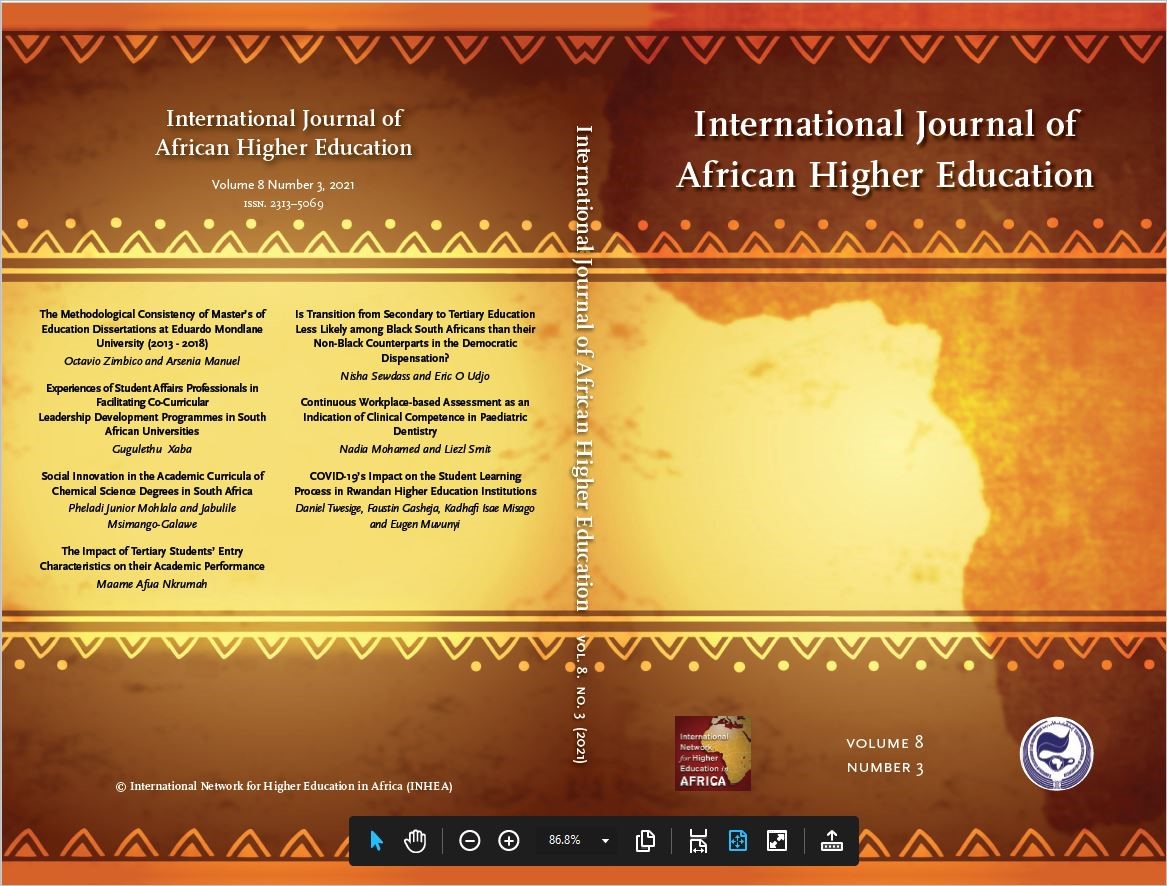Is Transition from Secondary to Tertiary Education Less Likely among Black South Africans than their Non-Black Counterparts in the Democratic Dispensation?
DOI:
https://doi.org/10.6017/ijahe.v8i3.14169Abstract
Education provides the building blocks for skills development for a
country’s labour market. Investment in education is hence an important
determinant of economic growth and has been associated with various economic
benefits. However, non-transition to tertiary education is a common phenomenon.
This study examined the probability of a specified age cohort transiting to tertiary
education in South Africa and compared Black South Africans with other
population groups considering environmental and individual factors. Using
cross-sectional data from the 2016 South African Community Survey, the study
revealed that the difference in the probability of transition to tertiary education
between Whites and Blacks was not statistically significant. The findings will be
useful to policymakers in formulating strategies to improve the quality of the
labour market, and thus South Africa’s economic competitiveness.
Key words: Transition to tertiary education, South African education system,
apartheid education, post-apartheid education, economic development
Downloads
Published
How to Cite
Issue
Section
License
Copyright (c) 2021 Nisha Sewdass, Eric O. Udjo

This work is licensed under a Creative Commons Attribution-NonCommercial-NoDerivatives 4.0 International License.

